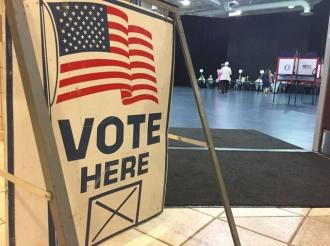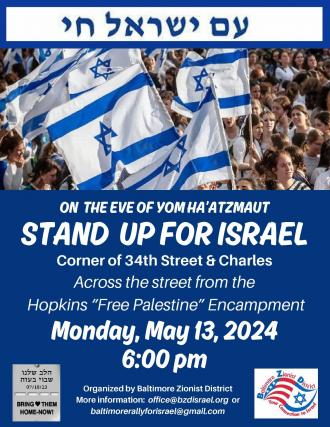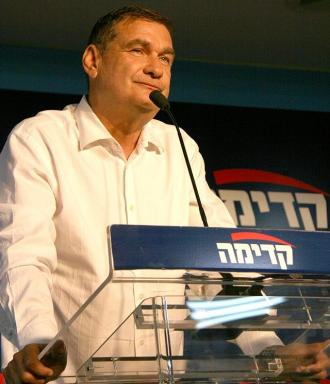A day after President Donald Trump issued executive clemency to 11 people including former Illinois governor Rod Blagojevich, another potential Trump pardon is in the news, this one for Julian Assange.
Assange’s lawyers claimed in a London court Wednesday that they would provide evidence that then-Rep. Dana Rohrabacher, R-Calif., promised Assange a pardon or some other favor related to a U.S. prosecution if he provided information absolving Russia of responsibility for hacking Democratic Party emails in 2016.
Assange’s lawyer, Edward Fitzgerald, said he had a statement from another Assange lawyer, Jennifer Robinson, that shows “Mr. Rohrabacher going to see Mr. Assange and saying, on instructions from the president, he was offering a pardon or some other way out, if Mr. Assange . . . said Russia had nothing to do with the DNC leaks.”
As with all claims by Assange, it’s worth skepticism and careful assessment.
The first thing to note is that Assange’s credibility is questionable, and he has reason to make such an allegation. He is fighting extradition to the United States, and one of the ways you can beat extradition is by arguing that you are being targeted politically. This claim could feed into such an effort.
The White House on Wednesday denied authorizing such an offer and distanced itself from Rohrabacher.
“The president barely knows Dana Rohrabacher other than he’s an ex-congressman,” White House press secretary Stephanie Grisham said. “He’s never spoken to him on this subject or almost any subject. It is a complete fabrication and a total lie. This is probably another never ending hoax and total lie from the DNC.”
Rohrabacher, meanwhile, has confirmed to Yahoo News that he told Assange he would get him a Trump pardon deal, but he also said he never spoke with Trump about it. In other words, he’s suggesting it was more of an idea than a sanctioned proposal.
“I spoke to Julian Assange and told him if he would provide evidence about who gave WikiLeaks the emails I would petition the president to give him a pardon,” Rohrabacher said. “He knew I could get to the president.”
The bigger point, though, is that there is a public backstory here, and Assange’s claim kind of fits and kind of doesn’t.
Rohrabacher visited Assange at the Ecuadoran embassy in London back in August 2017. Rohrabacher said at the time that he got “earth-shattering” information out of the meeting and that he intended to brief Trump on it. He indicated that the information pertained to Russia not being responsible for the 2016 election hacks.
This was also the first time that he floated a pardon for Assange. He told The Daily Caller afterward that “if [Assange] is going to give us a big favor, he would obviously have to be pardoned to leave the Ecuadoran embassy.”
The Wall Street Journal then reported in September 2017 that the congressman had promoted such a deal to the White House. Rohrabacher reportedly floated the deal to then-White House Chief of Staff John Kelly, who declined to pass it along to Trump. At the time, Rohrabacher declined to confirm or deny the report.
By late September 2017, though, Rohrabacher was publicly complaining that White House aides were blocking his effort to facilitate that deal. After Trump said he had not heard about a potential deal for an Assange pardon, Rohrabacher told The Daily Caller, “I think the president’s answer indicates that there is a wall around him that is being created by people who do not want to expose this fraud that there was collusion between our intelligence community and the leaders of the Democratic Party.”
Rohrabacher was still complaining about not getting an audience with Trump in February 2018, when he told The Intercept that Kelly had prevented him from briefing the president. He still hadn’t briefed Trump as of May 2018, when CNN spoke with him. In November of that year, he lost his reelection bid.
But while Rohrabacher struggled to get a meeting with Trump to talk about the proposal, he did get one before his visit with Assange. Rohrabacher met with Trump in April 2017 for 45 minutes in the Oval Office. Trump had seen the Russia-friendly congressman on Fox News and called him to deliver the invitation shortly after Rohrabacher walked off set, according to Politico.
That suggests the White House’s claim that Trump hadn’t spoken with Trump “on this subject or almost any subject” isn’t quite true. Even if they didn’t talk about pardons – which Rohrabacher now says they didn’t – it stands to reason they would have spoken about Russia.
So clearly there was at least some line of communication between Trump and Rohrabacher. That doesn’t mean Trump actually signed off on such a proposal, though, as Assange’s lawyers say Rohrabacher conveyed to them. But it was at the very least a proposal that Rohrabacher pushed – and we know he at least wanted to get the White House involved.
Rohrabacher was coy about whether the White House was involved when he first talked about a pardon in August 2017. He told The Daily Caller at the time, “I can’t remember if I have spoken to anybody in the White House about this.” How could he forget such a thing?
The fact that this meeting was so steadfastly opposed by Kelly and others is an intriguing part of this. Perhaps they knew the content of the April 2017 meeting between Rohrabacher and Trump and believed no good would come of another. Or perhaps they just knew Rohrabacher’s general reputation and that he would only feed Trump’s conspiracy theories about Russia not actually being behind the 2016 interference.
A couple of pieces that don’t quite fit here, though.
First is that the statement from Assange’s lawyers states that Assange was promised leniency or a pardon “if Mr. Assange . . . said Russia had nothing to do with the DNC leaks.” This is something that Assange has said publicly already. Why would that be the reward here if it’s nothing new?
The answer, judging by Rohrabacher’s comments, is that Assange wouldn’t just say Russia didn’t do the hacking but would provide evidence to back that up. He told The Daily Caller that Assange was reluctant to turn the information over because it could jeopardize his actual source – he’s sworn he’d never reveal such sources – but that he was perhaps desperate enough to make an exception if he got a pardon.
And second is that, if this was something Trump approved before Rohrabacher met with Assange, why would Rohrabacher then feel the need to pitch the idea to Kelly afterward? It’s possible he was doing so to help get another audience with Trump, but that seems unnecessary if the whole thing had been agreed to beforehand.
And while Trump regularly talks openly about pardons, when he was asked about one for Assange he didn’t do so. If he had actually signed off on some kind of bargain, perhaps he would want to obscure that. But generally Trump will leave something like that on the table and claim the authority to make it happen.
Rohrabacher also told The Daily Caller in October 2017 that he was working with Sen. Rand Paul, R-Ky., as a means of getting the situation onto Trump’s radar. Again, that doesn’t suggest terribly close coordination.
Finally, it’s worth emphasizing that there were two other people in that April 2017 White House meeting, according to CNN’s report at the time: then-Chief of Staff Reince Priebus and then-chief strategist Steve Bannon. If Trump authorized such a deal and it occurred at that meeting, they would ostensibly know about it.

















